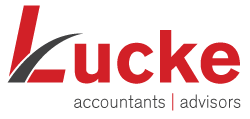Jeff Lucke, CPA, is the founder of Lucke & Associates, with an entrepreneurial background. Jeff has had ownership interests in businesses within several industries including automotive, construction, healthcare, telecommunications, and restaurants, as well as being active in real estate. As an owner of a growing CPA firm and other businesses, he has gained unique insights into the challenges and issues that face other growing businesses that most other CPAs do not have. This kind of knowledge ultimately benefits every one of the firm’s clients. He is very involved with clients and becomes deeply involved in their businesses and helping them succeed. Jeff is a graduate of the University of Nebraska and holds a Bachelor of Science in Accounting; his professional affiliations include the AICPA and KSCPA. Jeff currently serves a board member for his community on the Construction Financial Managers Association, the American Diabetes Association, and Big Brothers Big Sisters.
Right now, football teams are trying to put as many wins on the board as possible to make this a special season. Sports can highlight important lessons for business owners about profitability. One is that companies must learn from their mistakes and adjust their profitability game plans accordingly. Typical fumbles include poor customer service, ineffective…
Do you want to withdraw cash from your closely held corporation at a low tax cost? The easiest way is to distribute cash as a dividend. However, a dividend distribution is taxable to you as a shareholder but it’s not deductible by the corporation. But there are several alternatives that may allow you to withdraw…
Here are a few key tax-related deadlines for businesses and other employers during Quarter 4 of 2019. OCT. 15: If a calendar-year C corp. that filed an extension, file a 2018 income tax return. OCT. 31: Report income tax withholding and FICA taxes for Q3 2019 (unless eligible for Nov. 12 deadline). DEC. 16: If…
If you’re a small business owner, you may want to set up a retirement plan for yourself and any employees. Several types of plans are eligible for tax advantages, including 401(k)s, Simplified Employee Pension (SEP) plans and SIMPLE IRAs. For 2019, the maximum amount you can contribute to a 401(k) and exclude from income is…
The use of a company car is a valuable fringe benefit for business owners and key employees. This perk results in tax deductions for the employer and tax breaks for the owners and employees using the cars. (And of course, they get the nontax benefits of driving the cars!) For tax deduction purposes, a business…
Operating a business as an S corporation may provide advantages, including limited liability and no double taxation (at least at the federal level). Self-employed people may also be able to lower their exposure to Social Security and Medicare taxes. But not all businesses are eligible and, with tax law changes, S corps may not be…
In recent months, many businesses and employers have received “no-match” letters from the Social Security Administration (SSA). These letters alert employers if employees’ names and Social Security numbers (SSNs) don’t match the data reported on W-2 forms, which are given to employees and filed with the IRS. If you receive a no-match letter, check to…
More businesses are accepting bitcoin and other virtual currency payments, and the IRS is taking notice. The agency just announced it is sending letters to taxpayers who potentially failed to report income and pay tax on virtual currency transactions or didn’t report them properly. The letters urge taxpayers to review their tax filings and, if…
Many businesses struggle to turn abstract strategic planning ideas into concrete, actionable plans. One reason is simple: ineffective meetings. A good way to get started running better ones is to involve everyone in the agenda-setting process. Also, encourage meeting leaders to speak with conviction and express positivity (if not passion) for the subject matter. To…
The IRS uses Audit Techniques Guides (ATGs) to help IRS examiners get ready for audits. Your business can use the same guides to gain insight into what the IRS is looking for in terms of compliance with tax laws and regulations. Many ATGs target specific industries, such as construction, aerospace, art galleries, child care providers…










